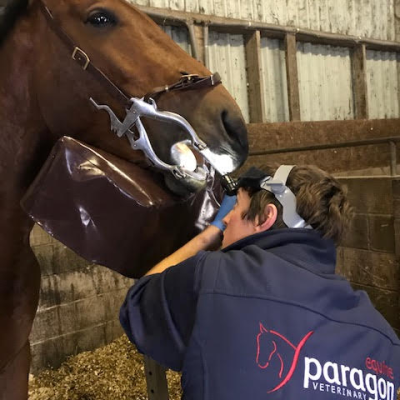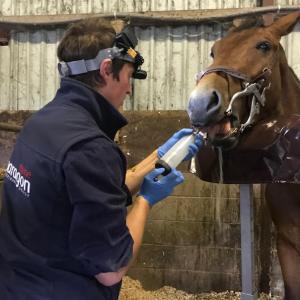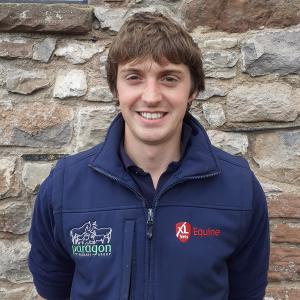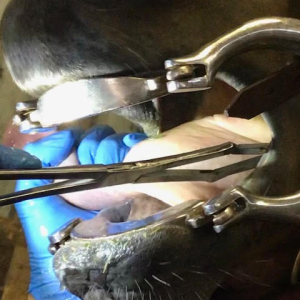
The answer could be simpler than you think. Dental disease can occur all too easily in horses and catch out the unwary.

Horses should have their teeth checked every 12 months. Their teeth grow continuously, and over a 12-month period they can develop sharp points on their cheek teeth which can lead to painful rubs and ulceration of the gums.
Horses are good at hiding dental pain. They will often tolerate a lot of pain in their mouth without their owner being aware. If they are sore on one side of the mouth they will often just eat on the other side, and a common mistake is to think that because the horse is still eating there is nothing wrong.

More severe dental disease will result in symptoms like quidding and weight loss. Infact dental disease is one of the leading causes of weight loss. If they are getting rubs or lacerations on their gums then you might notice a poor contact when riding, or the horse being less willing to turn or bend in a certain direction.
But initially, often the only way to know what’s going on is to put a gag on and have a look. And the earlier we pick up dental disease the easier it is to treat.
We advise that you only use a qualified veterinary surgeon or a registered equine dental technician to examine your horse’s mouth as dental equipment in the wrong hands can be dangerous. As veterinary surgeons we can sedate horses to examine their teeth and perform further diagnostics when required such as radiographs. And as vets we can dispense pain relief and antimicrobials if required.

As well as the routine dentistry we can also bring horses into our equine facility at Newbiggin if more advanced work is required, such as tooth extractions. Surgery can be a worrying prospect for horse owners, but we do most dental surgery with the horse standing under sedation. We perform nerve blocks, like you will have experienced at the dentist if you have a tooth taken out.
It is often assumed that horses only receive sedation for routine dental care if they are naughty, but this isn’t the case. Sedation allows us to do a thorough examination and makes the experience nicer for the horse and safer for the owner.
Treating dental disease can have a dramatic effect on a horse’s well-being and performance. I recently had a horse which came to us that was not putting condition on well. When we examined it, we found a slab fracture of one of the cheek teeth. The owner knew the horse was not eating quite as quickly and was losing some condition but when you looked at the horse’s head and felt outside the mouth, there were no obvious signs.

Because the tooth had fractured into the sensitive pulp cavity it was severely damaged and had to be removed. We did that under standing sedation and the horse went home the next day. It had pain relief for five days and after that it was eating well and continued to put on condition which was great to see. *Paragon Equine is offering 15 per cent off routine dentistry throughout November.